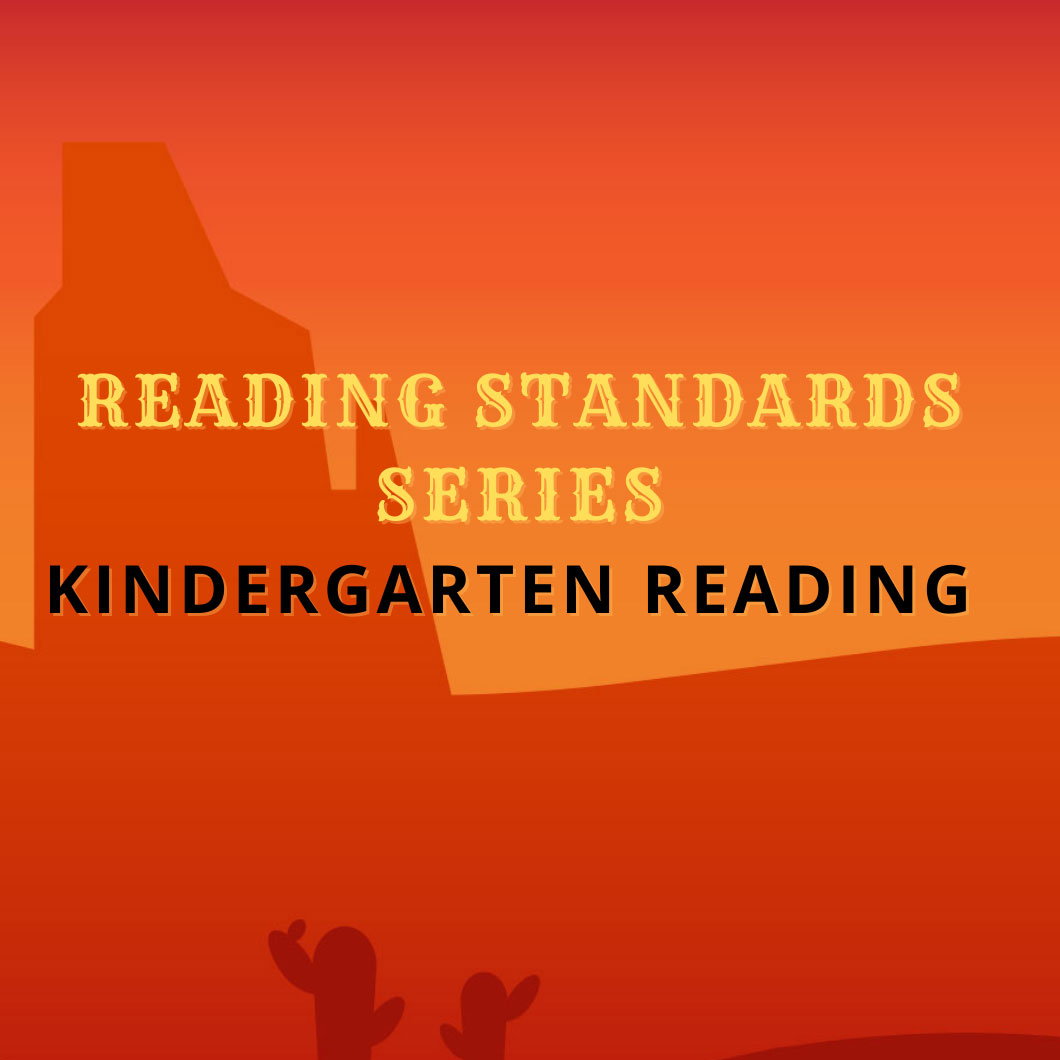Kindergarten Reading Standards
Kindergarteners learn a lot of new things in school. One of the most important subjects they will be studying is literacy. Literacy skills are essential for success in school and in life. However, unless you are a teacher or in the education environment, you’re probably wondering what exactly you should my Kindergartener know by the end of the year? What skills should they have mastered throughout the year?
I want to give you some of the Kindergarten reading standards that we utilize to ascertain how a Kindergartener performs. There are specific literacy standards that all Kindergarteners must meet to be successful; this article will discuss those standards so as parents you can verify that your little one is progressing, so they are ready for First Grade!
We like to categorize the various skills and knowledge necessary; the categories are Basic, Proficient, and Advanced.
Basic Skills
Say the alphabet
Identify phonemes and words in spoken language:
An important basic skill for Kindergarteners to learn is phonemic awareness. Phonemes are the individual sounds that makeup words. For example, the word “bat” has three phonemes /b/, /a/, and /t/.
Match letters and sounds:
Children also need to be able to match letters with their corresponding sounds. For example, the letter “D” makes the sound /d/. Once your child can identify both the phoneme and the letter in a word, they can begin to read and spell words.
Recognize rhyming words:
Rhyming words are words that have the same ending sound. For example, “cat” and “mat.” Kindergartners should be able to identify rhyming words and produce their own.
Retell with prompting a story read-aloud:
Another critical skill Kindergarteners should develop early comprehension skills while reading and what’s being read to them, known as oral comprehension. In short, they need to understand what they are reading, including being able to retell a story after hearing it read-aloud.
Identify the upper and lowercase letters and produce letter sounds:
In Kindergarten, students also learn to read and write their names. They need to be able to identify both the upper – and lowercase letters in their name, as well as the letter sounds.
Identify some concepts of print in the text:
Kindergartners should also learn about the different concepts of print and understand that print is read from left to right and top to bottom.
Identify that there are other cultures from literature read-aloud:
In Kindergarten, they learn about different customs and traditions from the literature read aloud to them.
Locate informational text at school when prompted:
Kindergartners should be able to identify informational text when prompted. This could be anything from a label on a product to a flyer for an upcoming event.
Proficient
Identify single syllable spoken words:
The Kindergartener should be able to hear one-syllable words and identify the word’s written form.
Spell simple words phonetically, such as 2 to 3 letter words. c-a-t:
Once your child has a strong understanding of phonemes, they can begin to spell words phonetically. This means that they spell the word how it sounds.
Retell familiar stories, including key details:
Comprehension skills continue to develop in Kindergarten. This includes being able to retell familiar stories, including key details.
Identify and manipulate phonemes and words in spoken language:
By the end of Kindergarten, students should recognize phonemes and phrases in spoken language and manipulate them. This includes blending and segmenting sounds to create and read new words.
Match letters and sounds and use them in decoding and making C-V-C (Consonant-Vowel-Consonant) words:
By the end of Kindergarten, students should match letters with their corresponding sounds and use them in decoding and making C-V-C words. This includes being able to read and spell words with three letters.
Understand and use vocabulary from a text read-aloud:
Kindergartners should also comprehend and use vocabulary from the text that is read-aloud to them. This includes understanding the meaning of words they have never heard before.
Identify all upper-case and lowercase letters and matching sounds:
A proficient Kindergartner can quickly and easily recognize the upper and lowercase letters and sounds from a written text.
Read sight words and high-frequency words with automaticity:
Kindergartners should also read sight words and high-frequency words with automaticity. This means they can read these words without sounding them out each time.
Identify Concepts of Print in text:
In addition to understanding that print is read from left to right and top to bottom. Kindergarteners should also be able to identify other concepts of print. This includes understanding why some words are italicized or in all caps.
Tell what authors and illustrators do:
In Kindergarten, students also learn about the different jobs of creating a book. They know about what an author does and what an illustrator does.
Distinguish fiction from nonfiction:
Kindergartners should also be able to distinguish fiction from nonfiction. This includes understanding that fiction books are imaginary characters and events, while nonfiction books are based on real life.
Recognize that literature from various cultures shows differences in perspectives:
At the proficient level, Kindergartners should also understand that literature from various cultures shows differences in perspectives. This includes being aware that not everyone thinks or believes the same things.
Advanced Level
Read and manipulate words with blends, digraphs, and short vowels
By the end of Kindergarten, students should read and manipulate words with blends, digraphs, and short vowels. This includes being able to read and spell multisyllabic words.
Comprehend and use vocabulary from a text read independently:
By the end of Kindergarten, students should learn and use terminology from the text read independently. This means they can understand the meaning of words they have never heard before without any help.
Comprehend and respond to text read independently:
Kindergartners should also be able to comprehend and respond to text read independently. This includes being able to answer questions about what they have just read.
Use Concepts of Print in text:
In addition to using concepts of print in the text to locate information, Kindergarteners should also be able to use illustrations and headings to find the information.
Compare and contrast other cultures and their own:
In Kindergarten, students also learn to compare and contrast other cultures and their own. This includes understanding that people from different places may do things differently than they do.
Apply alphabetical order words to the first letter of their name:
By the end of Kindergarten, students should order a group of words based on the first letter of the word.
Identify characters in a story and their feelings:
In Kindergarten, students learn to identify characters in a story and their feelings.This includes understanding that characters can have different emotions.
Identify simple word meanings in written and spoken language:
Kindergartners who are good readers can also identify simple word meanings in written and spoken language. This means they can understand the definition of a word without any help and identify the differences in similarly spelled words

Is that All?
Wow, that seems like a lot for a Kindergartner!
So, what do Kindergarteners need to know to be proficient readers? A lot! They need to read and understand letters and sounds, identify concepts of print, read sight words and high-frequency words. Kindergartners also develop and understand different perspectives in literature, use vocabulary from texts, comprehend and respond to the text, and order groups of words based on the first letter. While this may seem like a lot, they will gain confidence in their new skills and be ready to tackle First Grade with the correct instruction and practice.
As we move into the last portion of the school year, make sure you check with your Kindergartner and their teacher to make sure he’s progressing as expected and is at the very least mastering most of the skills at the proficient level.



